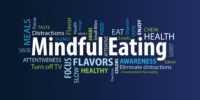Anti-Cancer: A New Way of Life by David Servan-Schreiber – Summary and Review

Anti-Cancer: A New Way of Life by David Servan-Schreiber explores various aspects related to cancer and lifestyle choices.
The book delves into the mind-body connection in healing and offers insights on stress management techniques.
It also discusses integrative treatments and provides practical tips for cancer prevention.
Key Takeaways
- Adopting a plant-based diet rich in nutrients and antioxidants for cancer prevention.
- Managing stress effectively through holistic practices to boost immunity.
- Prioritizing hydration and regular exercise for overall well-being and disease prevention.
- Embracing a clean living environment and mental well-being for holistic health.
Author's Background and Inspiration
The author of 'Anti-Cancer: A New Way of Life' draws upon personal experiences and a deep-rooted passion for wellness to inspire readers on their own journeys towards health and healing. David Servan-Schreiber, a renowned psychiatrist and neuroscientist, set out on a profound author's mission after being diagnosed with brain cancer.
This life-altering event became a catalyst for his exploration into holistic approaches to healing and the power of lifestyle choices in preventing and combating cancer. Servan-Schreiber's inspirational sources stem from his encounters with patients, research findings, and his own struggle with cancer, all of which shaped his belief in the body's innate ability to heal and the importance of nurturing it through natural means.
His journey not only led to personal healing but also sparked a mission to share his insights with the world, encouraging others to take charge of their health and well-being. Through his book, readers are invited to set out on their own transformative paths towards a new way of living that promotes energy and resilience.
The Impact of Lifestyle Choices
The choices one makes in daily life play a pivotal role in health outcomes, particularly in relation to cancer prevention.
Diet stands as a cornerstone, with certain foods showing potential in either promoting or inhibiting cancer growth.
Likewise, the benefits of regular exercise extend beyond physical fitness, offering protective effects against the development of cancer.
Diet and Cancer
Dietary choices profoundly influence the risk of developing cancer, highlighting the pivotal role lifestyle decisions play in shaping one's health. When it comes to cancer prevention and overall well-being, paying attention to nutrition guidelines and dietary recommendations is paramount.
- Plant-Based Diet: Embracing a plant-based diet rich in fruits, vegetables, whole grains, and legumes can provide essential nutrients and antioxidants that support the body's defense against cancer.
- Limit Processed Foods: Minimizing the intake of processed foods, high in added sugars, unhealthy fats, and preservatives, can reduce inflammation and oxidative stress, factors associated with cancer development.
- Hydration: Staying adequately hydrated with water and herbal teas supports cellular functions and aids in the detoxification processes essential for peak health.
Exercise Benefits
Embracing a lifestyle that includes regular physical activity can greatly enhance one's overall health and well-being. Exercise plays a pivotal role in promoting longevity and disease prevention. The health benefits of exercise are vast, ranging from reducing the risk of chronic diseases like cancer, heart disease, and diabetes to improving mental health and cognitive function.
Engaging in physical activity not only strengthens the body but also uplifts the spirit, fostering a sense of vitality and empowerment. The fitness advantages extend beyond just physical appearance; they encompass a holistic improvement in one's quality of life. By making exercise a priority in daily routines, individuals can unblock the transformative potential of movement, paving the way for a healthier, more vibrant existence.
Importance of Nutritious Diet
In a journey towards supreme health and well-being, embracing a lifestyle that prioritizes nourishing foods is paramount. The significance of a nutritious diet extends beyond mere sustenance; it serves as a cornerstone in the prevention of cancer and the best absorption of essential nutrients. When considering the importance of nutrition in the fight against cancer, here are three key points to ponder:
- Plant-Based Foods: Incorporating a variety of colorful fruits, vegetables, whole grains, and legumes into daily meals not only provides essential nutrients but also offers powerful antioxidants that combat free radicals, reducing the risk of cellular damage that may lead to cancer.
- Healthy Fats: Opting for sources of healthy fats such as avocados, nuts, seeds, and fatty fish can support overall well-being. These fats play an important role in maintaining cell structure and aiding in the absorption of fat-soluble vitamins that are necessary for best health.
- Hydration: Staying adequately hydrated is fundamental for cellular functions and toxin elimination. Choosing water and herbal teas over sugary beverages supports the body's natural detoxification processes, promoting a healthy internal environment conducive to cancer prevention.
Mind-Body Connection in Healing
The profound interconnectedness between the mind and body exposes a transformative pathway to healing and well-being. Through practices such as meditation therapy and emotional healing, individuals can set off on a journey towards holistic health, where mental, emotional, and physical well-being are intricately intertwined, offering a sense of freedom and empowerment in their healing process. Studies have shown that meditation therapy not only reduces stress and anxiety but also boosts the immune system, promoting overall wellness.
Emotional healing, on the other hand, enables individuals to set out on a journey towards holistic health, where mental, emotional, and physical well-being are intricately intertwined, offering a sense of freedom and empowerment in their healing process. This shift in mindset can have a profound impact on the body, creating an environment that's conducive to healing and resilience. By acknowledging and processing emotions, individuals can prevent the build-up of stress and tension, which are known to weaken the immune system and contribute to disease.
In embracing the mind-body connection, individuals set out on a journey towards holistic health, where mental, emotional, and physical well-being are intricately intertwined, offering a sense of freedom and empowerment in their healing process.
Strategies for Stress Management
In the journey towards peak health, mastering stress management is an essential skill.
Embracing the power of breathing exercises, practicing mindfulness for relaxation, and engaging in physical activity are potent strategies for combating stress.
Breathing Exercises for Stress
Engage in calming breathing exercises to effectively manage stress and promote relaxation. Deep breathing techniques can help center the mind and body, allowing for a sense of peace and tranquility amidst the chaos of daily life. To fully benefit from these practices, individuals are encouraged to find a quiet space where they can focus solely on their breath and inner sensations.
Here are three simple yet powerful breathing exercises to incorporate into your daily routine:
- Diaphragmatic Breathing: Also known as belly breathing, this technique involves breathing deeply into the abdomen to activate the diaphragm.
- 4-7-8 Breathing: Inhale for a count of 4, hold for 7, and exhale for 8, promoting relaxation and reducing stress.
- Alternate Nostril Breathing: This practice involves breathing in and out through one nostril at a time, balancing the body's energy flow.
Mindfulness for Relaxation
Practicing mindful awareness allows individuals to cultivate a sense of calm and clarity, essential for managing stress effectively. By incorporating meditation techniques into daily routines, one can learn to observe thoughts and emotions without judgment, fostering a peaceful state of mind.
Mindfulness encourages individuals to focus on the present moment, letting go of worries about the past or future, thereby reducing stress levels. Engaging in relaxation practices such as deep breathing exercises or body scan meditations can further enhance the benefits of mindfulness, promoting a deep sense of relaxation.
Through these practices, individuals can develop resilience to stressors, improve emotional well-being, and foster a greater sense of inner peace and balance in their lives.
Physical Activity Benefits
With physical activity, one can access a powerful tool for managing stress and enhancing overall well-being. Engaging in fitness routines and enjoying workout benefits can play a crucial role in a more balanced and harmonious life. Here are three key points to keep in mind:
- Endorphin Release: Physical activity triggers the release of endorphins, the body's natural mood elevators, which can help reduce stress and boost feelings of happiness.
- Improved Sleep: Regular exercise can enhance the quality of sleep, leading to better rest and increased resilience to daily stressors.
- Enhanced Energy Levels: Engaging in physical activity can increase energy levels, allowing individuals to better cope with the demands of daily life and manage stress more effectively.
Integrative Approaches to Treatment
In the domain of cancer treatment, integrating complementary therapies alongside conventional medical approaches has emerged as a promising path towards holistic healing and well-being. Alternative therapies such as acupuncture, meditation, yoga, and herbal supplements are being increasingly recognized for their potential to enhance the effectiveness of traditional treatments. This integrative approach acknowledges the interconnectedness of the mind, body, and spirit in the healing process, aiming to address not just the physical symptoms but also the emotional and psychological aspects of the disease.
Holistic healing emphasizes the importance of treating the whole person, considering their lifestyle, beliefs, and emotional well-being in addition to the physical ailment. By incorporating alternative therapies into the treatment plan, individuals can experience a more thorough and personalized approach to healing. This integrative model not only focuses on fighting the cancer cells but also on strengthening the body's natural defenses and promoting overall wellness.
Ultimately, embracing integrative approaches to cancer treatment empowers individuals to take an active role in their healing journey, fostering a sense of control and hope in the face of adversity.
Empowering Tips for Cancer Prevention
Guided by the principle of proactive wellness, understanding and implementing empowering strategies for cancer prevention is a transformative step towards nurturing long-term health and vitality. Taking a holistic approach to well-being involves considering various factors that can impact health outcomes immensely.
Here are three empowering tips for cancer prevention:
- Dietary Recommendations: Embracing a diet rich in fruits, vegetables, whole grains, and lean proteins not only supports overall health but also plays an essential role in reducing cancer risk. Choosing organic and locally sourced foods can further enhance the nutritional value of meals.
- Environmental Factors: Limiting exposure to harmful substances like tobacco, pesticides, and pollutants can help in reducing the risk of developing cancer. Creating a clean and toxin-free living environment can contribute to better health outcomes.
- Mental Health: Prioritizing mental well-being through stress management techniques, mindfulness practices, and seeking support when needed can strengthen the mind-body connection and enhance overall resilience against illnesses, including cancer.
Frequently Asked Questions
Can Cancer Be Completely Prevented by Following the Recommendations in the Book?
While the book's prevention strategies offer valuable insights, complete prevention of cancer may have limitations. Long term impact and sustainability depend on various factors. Consistent lifestyle changes can reduce risks, but complete prevention is complex.
Are There Any Potential Negative Effects of Adopting the Lifestyle Changes Suggested in the Book?
Adopting the lifestyle changes from the book may have potential risks and long-term implications. Individuals should be mindful of any extreme alterations affecting their overall well-being. Awareness and moderation are key for sustainable health improvements.
How Does the Book Address the Emotional and Psychological Aspects of Dealing With a Cancer Diagnosis?
In addressing the emotional and psychological aspects of dealing with a cancer diagnosis, the book emphasizes coping strategies such as support groups. It explores the mind-body connection, guiding readers on a healing journey through wise and insightful advice.
Are There Any Specific Supplements or Alternative Therapies Recommended in the Book That May Not Be Commonly Known?
In his holistic approach, David Servan-Schreiber suggests lesser known supplement recommendations and alternative therapies. His insights offer a fresh perspective on managing cancer, emphasizing the importance of considering unconventional treatments for overall well-being.
Navigating systems can be challenging, but the book offers guidance on seamlessly integrating conventional medicine with holistic approaches. It empowers individuals to steer through the complexities of treatment, embracing a thorough, integrative approach.











